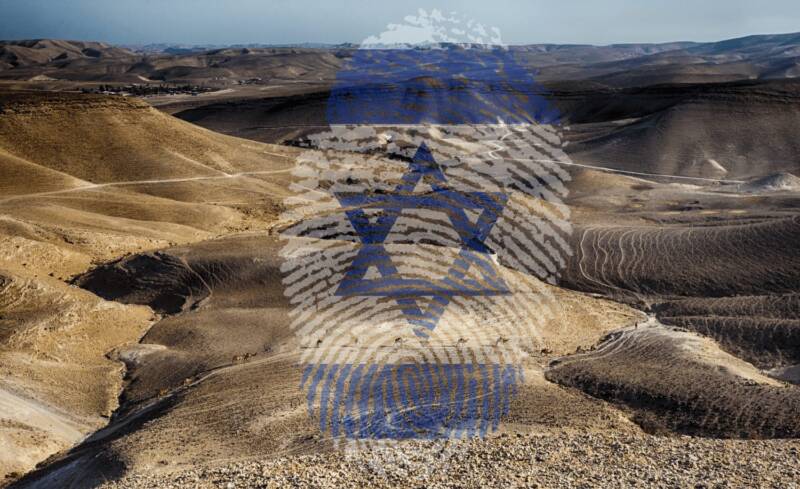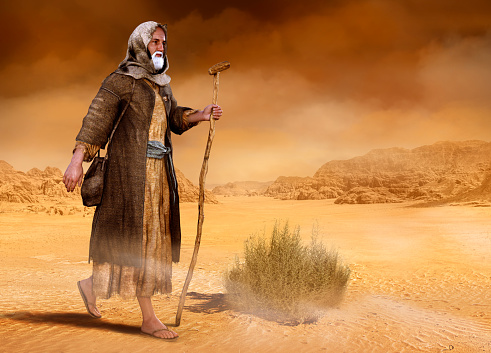
BY RABBI LORD JONATHAN SACKS
Numbers 30-36
Only in Israel can the Jewish people construct a political system, an economy, and an environment on the template of Jewish values.
The long journey is nearing its close. The Jordan is almost within sight. We have read the long itinerary of stops along the way. Finally we are reaching the end of the list of encampments, and God tells Moses: “Take possession of the land and settle in it, for I have given you the land to possess” (Num. 33:53). This, according to Nahmanides (to Num. 33:53), is the source of the command to dwell in the land of Israel and inherit it.
With this we come to one of the central tensions in Judaism and Jewish history: the religious significance of the land of Israel. Its centrality cannot be doubted. Whatever the subplots and subsidiary themes of Tanach, its overarching narrative is the promise of and journey to the land. Jewish history begins with Abraham and Sarah’s journey to it. The four subsequent books of the Torah, from Exodus to Deuteronomy, are taken up with the second journey in the days of Moses. Tanach as a whole ends with Cyrus king of Persia granting permission to Jews, exiled in Babylon, to return to their land — the third great journey (II Chr. 36:23).
The paradox of Jewish history is that although a specific territory, the holy land, is at its heart, Jews have spent more time in exile than in Israel; more time longing for it than dwelling in it; more time travelling than arriving. Much of the Jewish story could be written in the language of Parshat Masei: “They journeyed from X and camped at Y.”
Hence the tension. On the one hand, monotheism must understand God as non-territorial. The God of everywhere can be found anywhere. He is not confined to this people, or that place — as pagans believed. He exercises His power even in Egypt. He sends a Prophet, Jonah, to Nineveh in Assyria. He is with another Prophet, Ezekiel, in Babylon. There is no place in the universe where He is not. On the other hand, it must be impossible to live fully as a Jew outside Israel, for if not, Jews would not have been commanded to go there initially, or to return subsequently. Why is the God beyond place to be found specifically in this place?
The Sages formulated the tension in two striking propositions. On the one hand, “Wherever the Israelites went into exile, the Divine Presence was exiled with them.” On the other, “One who leaves Israel to live elsewhere is as if he had no God” (Ketubot 110b). Can one find God, serve God, experience God, outside the Holy Land? Yes and no. If the answer were only yes, there would be no incentive to return. If the answer were only no, there would be no reason to stay Jewish in exile. On this tension, the Jewish existence is built.
- Chamisa under fire over US$120K donation
- Mavhunga puts DeMbare into Chibuku quarterfinals
- Pension funds bet on Cabora Bassa oilfields
- Councils defy govt fire tender directive
Keep Reading
What then is special about Israel? In The Kuzari, Judah Halevi says that different environments have different ecologies. Just as there are some countries, climates, and soils particularly suited to growing vines, so there is a country, Israel, particularly suited to growing Prophets — indeed a whole Divinely-inspired people. “No other place shares the distinction of the divine influence, just as no other mountain produces such good wine.”
Nahmanides gives a different explanation:
God created everything and placed the power over the ones below in the ones above and placed over each and every people in their lands according to their nations a star and a specific constellation…. But the land of Israel, in the middle of the inhabited earth, is the inheritance of God…. He has set us apart from all the nations over whom He has appointed princes and other celestial powers, by giving us the land [of Israel] so that He, blessed be He, will be our God and we will be dedicated to His name. (Commentary to Lev. 18:25)
Though every land and nation is under the overarching sovereignty of God, only Israel is directly so. Others are ruled by intermediaries earthly and heavenly. Their fate is governed by other factors. Only in the Land and People of Israel do we find a nation’s fortunes and misfortunes directly attributable to their relationship with God.
Judah Halevi and Nahmanides both expound what we might call mystical geography. The difference between them is that Judah Halevi looks to earth, Nahmanides to heaven. For Judah Halevi, what is special about the land of Israel is its soil, landscape, and climate. For Nahmanides, it is its direct governance by God. For both of them, religious experience is possible outside Israel, but it is a pale shadow of what it is in the land. Is there a way of stating this non-mystically, in concepts and categories closer to ordinary experience? Here is one way of doing so.
The Torah is not merely a code of personal perfection. It is the framework for the construction of a society, a nation, a culture. It is about what Rabbi Aharon Lichtenstein called, in a memorable phrase, “societal beatitude.” It contains welfare legislation, civil law, rules governing employer-employee relationships, environmental provisions, rules of animal welfare, public health, and governmental and judicial systems. —Online










